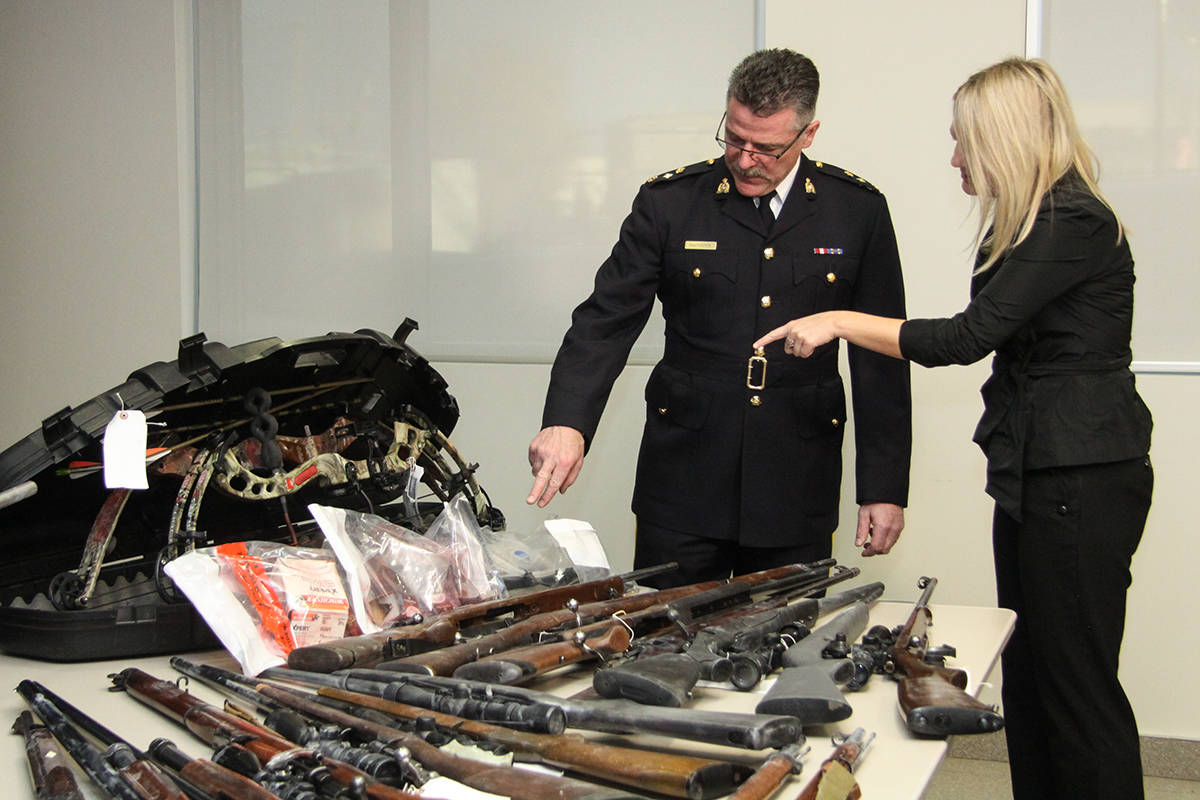The federal government tabled a proposed new bill Tuesday to tighten the sale and tracking of firearms, only to find itself under attack from both sides: gun owners wary of burdensome regulation and shooting victims who say the bill doesn’t go far enough.
Gun retailers would be required to keep records of firearms inventory and sales for at least 20 years under the legislation introduced in the House of Commons. The proposed measure is intended to assist police in investigating gun trafficking and other crimes.
The legislation would also require the purchaser of a hunting rifle or shotgun to present a firearms licence, while the seller would have to ensure its validity.
“What’s the point of having a licence if no one ever checks it out?” said Public Safety Minister Ralph Goodale. “The process for doing so will be efficient and straightforward.”
In addition, the bill would expand the scope of background checks on those who want to acquire a gun. Instead of just the five years immediately preceding a licence application, personal history questions would cover a person’s entire lifetime.
While crime rates in Canada have generally been declining for more than two decades, offences involving firearms have become more prevalent, especially since 2013, the government noted. ”Gun-related homicides, domestic and gender-based violence involving guns, criminal gang activity and gun thefts are all up significantly.”
Goodale has already devoted more than $327 million over five years, with $100 million a year thereafter, to address criminal gun and gang activities.
The government says the new legislative proposals emphasize public safety and effective police work, while respecting law-abiding firearms owners.
RELATED: New Liberal bill would tighten sale, licensing of firearms
The move to require commercial retailers to keep sales records would reinstate a measure that existed from the late 1970s until 1995, when a previous Liberal government ushered in universal registration of firearms — essentially replacing the store ledgers.
The Conservative government dismantled the controversial long-gun registry, which had come to symbolize wasteful inefficiency for many firearms owners.
The National Firearms Association accused the government of trying to revive the registry through the proposed record-keeping provisions. “This is a return to universal registration,” said association vice-president Blair Hagen.
Prime Minister Justin Trudeau bristled at such a suggestion.
“We committed to not restore a long-gun registry and we’re not restoring a long-gun registry,” Trudeau said. ”It’s that simple.”
Federal officials pointed out that most retailers already keep sales records for liability and insurance purposes, and to inform customers of product recalls.
The bill would repeal some measures passed by the previous Conservative government.
For instance, it would roll back some automatic authorizations to transport restricted and prohibited firearms, such as handguns and assault weapons. Under the bill, owners would need a permit to transport such guns, except when taking them to a shooting range or home from a store.
The bill also proposes restoring the authority of RCMP experts to classify firearms without political influence, repealing cabinet’s authority to overrule Mountie determinations.
The Conservatives said the bill does nothing to fight gang and gun violence in places like Toronto and Surrey, B.C.
“Liberals cannot be trusted when it comes to firearms legislation because they fail to tackle criminals who use guns to commit violent crime; meanwhile, they treat law-abiding firearms owners as criminals,” Conservative House leader Candice Bergen and party public safety critic Pierre Paul-Hus said in a joint statement.
“Conservatives will adamantly oppose any attempt by the Liberals to create a new long-gun registry.”
Goodale highlighted four additional ideas for further discussion:
- Tougher after-hours storage rules for commercial outlets, after two dozen guns were stolen in Saskatchewan by snipping a cable;
- The appropriateness of manufacturers’ advertisements that glorify violence and simulate warfare;
- Whether provinces should consider requiring medical professionals to advise authorities of people with diagnosed conditions, including mental illnesses, that are likely to put the lives of others in danger;
- A possible means to identify large and unusual gun transactions that could point to gang activity or trafficking.
Jim Bronskill, The Canadian Press



